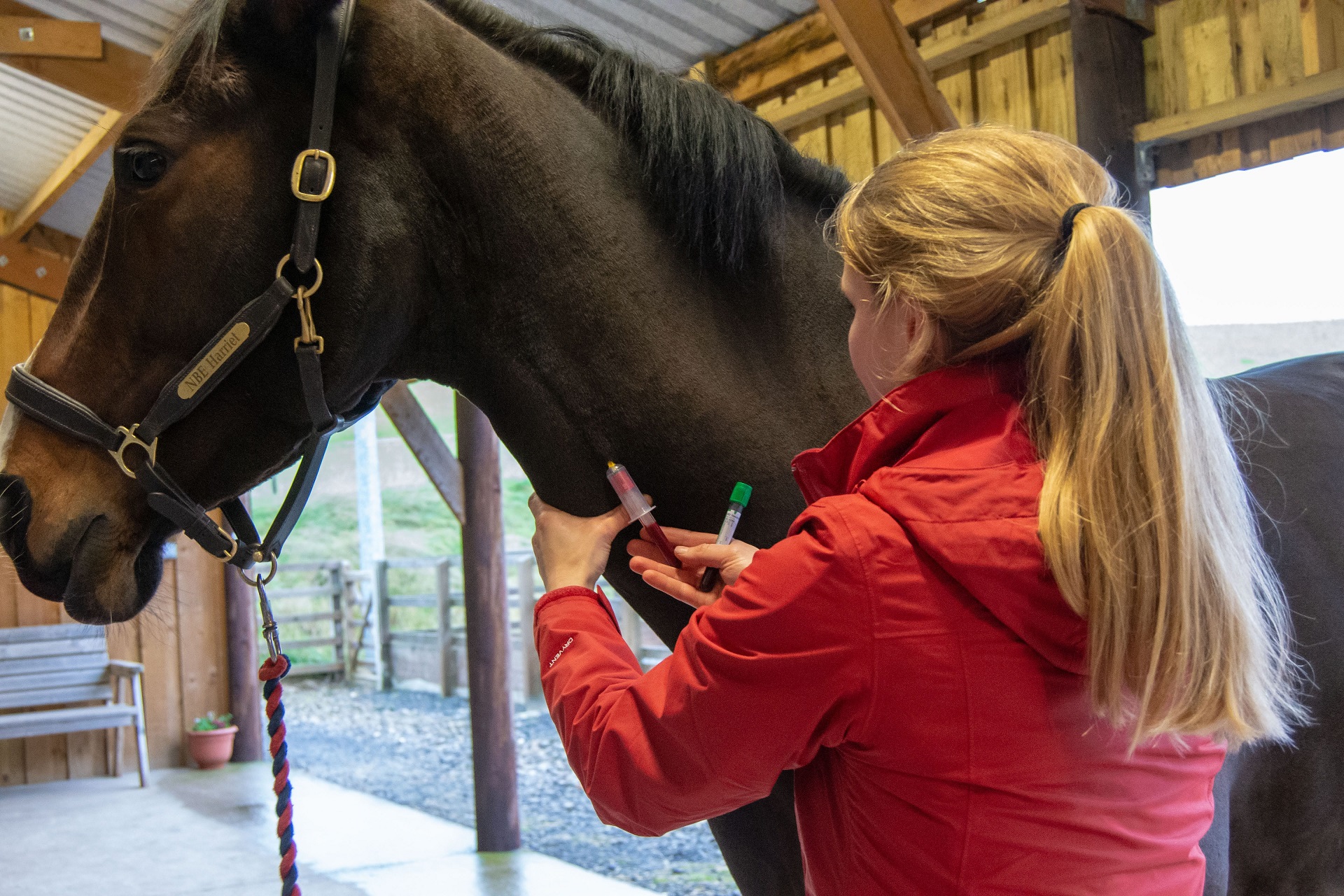It is recommended that all horses are vaccinated, whether they go out competing or not. All horses can succumb to the fatal disease, Tetanus (lockjaw), which is preventable by a vaccination every 2 years. Since January 2025, the recommendation is now to vaccinate any horses leaving their premises for strangles too.
Equine influenza (flu) is spread by water droplets in the air, so even horses that do not leave the yard can succumb to this respiratory infection. It is important to note that horses that are out-competing can bring the virus home to the yard, and infect unvaccinated horses. Symptoms of this disease can be much reduced by annual vaccinations. Sadly, if your horse has lapsed their vaccinations by as little as one day, they will need to be restarted. Please do not ask for your passport to be backdated, this will be refused and could cause offence.
From 1st January 2022, the flu vaccination schedule is changing under racing rules (BHA); other organisations are yet to announce their intent to change.
The primary vaccination schedule is as follows:
- Vaccine 1 – Day 0
- Vaccine 2 – 21 – 60 days (previously 21-92 days)
- Vaccine 3 – 120-180 days (previously 150-215 days)
- Then boosters within 6 months.
Confirmation from FEI, PC, BE, BD, BS, BRC will be imminent and we will be following this closely.
Strangles Vaccination
‼️How we prevent and manage strangles is changing ‼️
In January 2025, an exciting paper was published, detailing some changes to the management and prevention of the horrible disease strangles.
Vaccinating your horse for strangles is the recommended course of action for any of the following scenarios:
🦄Premises that frequently receive new horses.
🐴 Premises with large numbers of horses transiting through for lessons, exercise.
👶Premises with large numbers of foals and young horses.
🎠Livery yards with horses of mixed ownership, particularly if there are frequent movements of horses onto the yard.
💰Equestrian businesses where the risk of disease would threaten its commercial viability or have an unacceptable impact on competition or other business-related schedules.
🦄Horses that attend ‘enthusiastic amateur’ competitions where levels of biosecurity and knowledge are sometimes suboptimal.
🐴Studs that accept walk-in mares and the mares that visit them.
😷Horses kept on any premises that have poor levels of biosecurity.
As you can see from this list, there are not many situations where this doesn’t apply – so the strangles vaccination should be part of most horse’s annual routine preventative health care.
A course consists of:
2 vaccinations, 4 weeks apart, then every 6-12 months dictated by the risk factors, which would be discussed with your equine veterinary surgeon at the time of vaccination.
We can also use this vaccination during an outbreak situation – call us to discuss further.
☠️This is not the same vaccination as was on the market many years ago – so the side effects are not what you may have heard of before. We have vaccinated many horses within the practice, and see very few side effects (similar to influenza and tetanus vaccinations).
The paper in case you are interested:
https://beva.onlinelibrary.wiley.com/doi/10.1111/eve.14032#:~:text=Considering%20the%20high%20rates%20of,be%20possible%20to%20eradicate%20strangles
